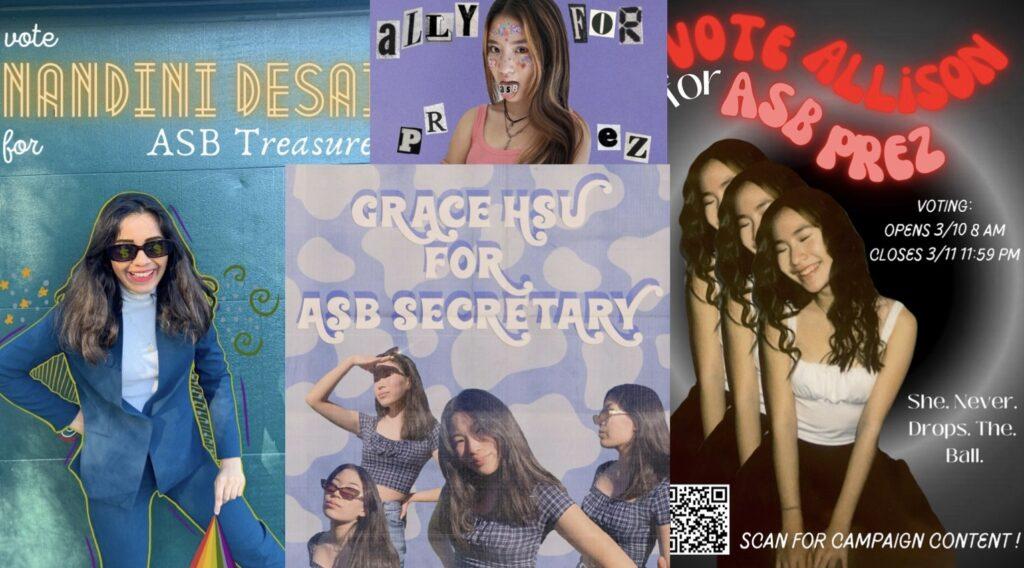Each spring, as election campaigns start to flood Instagram feeds and colorful posters crowd the hallways, some female candidates say they have been the target of online attacks that have tainted the process and left them feeling demoralized.
An alumna candidate — who asked to remain anonymous — described how in the spring of 2021, friends of her male opponent created a podcast titled “Haleakalan” that ridiculed her and another female student who was also running for a leadership position.
The podcast called on students to vote for the male opponent, insulting the two female candidates on their campaigning style, graphics and their personality. The podcasters said they vouched for the male candidate because they had a “personal problem” with the women. The podcast, which was posted on YouTube, was ultimately taken down after being brought to the administration’s attention.
The Falcon reached out to the students on the podcast and received no response.
Several female students, both current students and alumni, who have run for leadership positions told The Falcon that they have faced misogyny in the form of derogatory comments online and unfair double standards while campaigning.
Although the percentages of male (51.4%) and female students (48.6%) enrolled at the school are almost equal, the students said they feel their voices are undermined during leadership elections due to an unfair “girl versus guy” mentality, in which male students are inherently taken more seriously than their female counterparts. The candidates said they often have to go out of their way to prove themselves to male voters and defend their qualifications.
Nandini Desai, a Class of ‘22 alumna and former ASB clubs commissioner, said that “if there was a mediocre girl and a mediocre guy running for leadership, people would always pick the mediocre guy.”
“It is disheartening when you see women who pour their heart and soul into a campaign, reaching out to people genuinely and authentically, still be [considered less qualified] just because guys band together with guys,” Desai said.
Another Class of ‘22 alumna and former ASB clubs commissioner Grace Hsu added that when she reached out to the male students on campus, she felt she wasn’t allowed the opportunity to speak about her campaign because male students had already made a collective decision among themselves about who she was as a candidate.
“If you were to reach out to any guy and tell them about your campaign, no matter how great those ideas were, no matter how unique they were, and no matter how much you put yourself out there, you’re always shut down because the guys would already be on the [male candidate’s] side,” Hsu said.
Because of this, she said that female candidates often feel the need to change themselves in order to please their male peers — something they never felt male candidates had to do.
“I feel like [women] have to change their personalities to please the guys at our school,” Hsu said. “I had to create [many] different personalities in which I had to choose from depending on how [I thought] a guy was going to respond.”
Analyzing her own experience, Hsu added that candidates like herself often felt pressure to go above and beyond normal expectations in order to level the playing field with their male counterparts. She said they are constantly held to a double standard where they are either seen as “not good enough” or “doing too much.”
“If a girl works hard to design her campaign, she is ‘trying too hard.’ But when a guy does the same thing it is commendable because ‘he is putting in so much effort,’” Hsu said.
When she put out videos addressing serious topics, she was called “too girly and sensitive” by her peers — but if she put out a bold and colorful video, she was “too intense and forceful.”
Senior ASB treasurer Anand Agrawal noted that many qualified female candidates would “bust their a– campaigning” compared to their male counterparts, but still end up votes shy from winning. He felt that “guys tend to have it easier in elections” as he recalled the immediate support he was given by male students at the school.
“I vividly remember when I was a sophomore at the time, and [was running for ASB treasurer], I asked one junior boy to help me,” Agrawal said. “And it wasn’t even intentional, but I almost had widespread junior support during that election from the boys.”
Senior ASB president Mason Wang found that a similar approach for campaigning in terms of specific gender targeting worked for him. He noted there was solidarity in his vote regarding male friends in his grade as opposed to females.
“[During elections, there was] sort of a mindset that I had to win over the votes of these guys and win over the votes of these girls,” Wang said. “And I naturally thought about it in two different terms. If I’m trying to guess who’s going to vote for me, I think a lot of the guys I’m friends with are probably going to pick me.”
Assistant principal Matthew Torrens stressed how students vote matters and not to have a “pack mentality” when choosing a candidate.
“I think the number one thing that we need to remind students is to vote for the best candidate and to make their own decision on what qualifies as the best candidate,” Torrens said.
He believes that this message is most effective if emphasized by the student body, rather than the administration, and wants to remind students to engage in a dynamic conversation when discussing candidates running for a leadership position.
He also urges students to attend class meetings where the administration can address voting objectively and being well-informed. However, regarding hate on social media, Torrens notes that the problematic topic is tougher for the administration to control.
“People make fun of other candidates on social media and there is this pack mentality with certain groups of people. Unfortunately, that model is for students to look at,” Torrens said. “Hopefully, those inappropriate and cruel messages will slowly disappear [as we stress how votes matter] but social media is a more difficult topic to address.”
Senior class president Allison Tan (who is a Falcon staff member) echoed the female candidates’ sentiment and said she also went through similar experiences while running for leadership positions.
“As a [female candidate] you can never win — you can never please everyone,” Tan said. “I feel like [female students’] ideas are shut down before we even get a chance to talk and guys especially already have this image of who they think you are in their head. No matter how [hard you work towards showing] you are a strong candidate, their view of you won’t change.”
Tan added that female students in elections continue to face intense forms of online hate, including passive aggressive comments, microaggressions and outright hatred across platforms like Instagram stories and Discord servers.
“In a voice recording, one of my classmates said that ‘Allison is a stupid, whitewashed Asian b—-,’ and people should vote for [the male candidate]” Tan said.
She said that acknowledging sexism in the community is key because, even if it seems subtle and may not be as noticeable, it still has a damaging effect on women running in elections, and by extension, the larger school community.
“Even though these are just high school elections, [sexism] appears in real life politics, too,” Tan said. “I think that a lot of people treat these elections like it’s a joke. But, it isn’t a joke. This sexist culture needs to change. You have to take it more seriously, call out your friends and use your voice because we are almost adults and we need to start acting like it.”



























